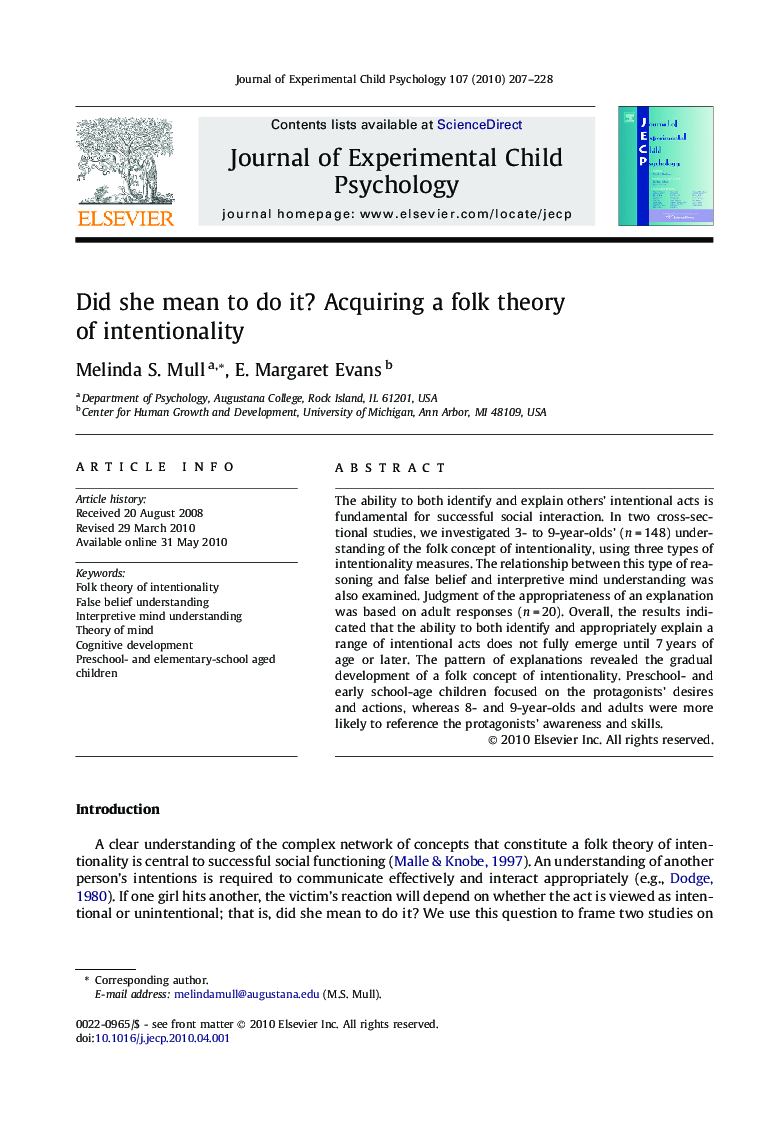| Article ID | Journal | Published Year | Pages | File Type |
|---|---|---|---|---|
| 918482 | Journal of Experimental Child Psychology | 2010 | 22 Pages |
The ability to both identify and explain others’ intentional acts is fundamental for successful social interaction. In two cross-sectional studies, we investigated 3- to 9-year-olds’ (n = 148) understanding of the folk concept of intentionality, using three types of intentionality measures. The relationship between this type of reasoning and false belief and interpretive mind understanding was also examined. Judgment of the appropriateness of an explanation was based on adult responses (n = 20). Overall, the results indicated that the ability to both identify and appropriately explain a range of intentional acts does not fully emerge until 7 years of age or later. The pattern of explanations revealed the gradual development of a folk concept of intentionality. Preschool- and early school-age children focused on the protagonists’ desires and actions, whereas 8- and 9-year-olds and adults were more likely to reference the protagonists’ awareness and skills.
